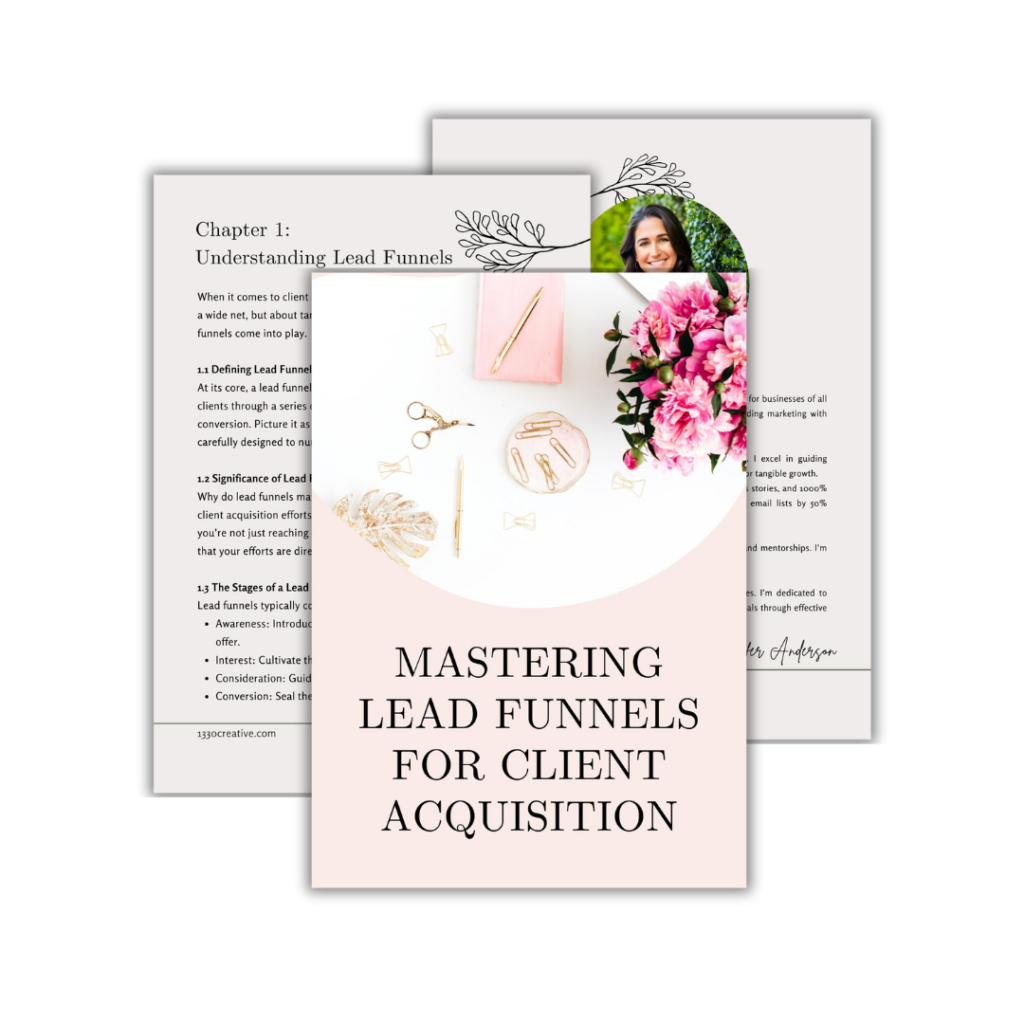Law Firm Marketing Secrets
from a seasoned marketing strategist
In the intricate world of law firm marketing, success lies not in elusive tricks or hidden shortcuts, but rather in the careful orchestration of a series of well-informed tried & true strategies. These strategies, often referred to as the “secrets” of effective law firm marketing, are the foundational pillars upon which prosperous legal practices are built. They encompass a blend of expertise, creativity, and data-driven decision-making that set apart the truly successful firms from the rest.
In this blog post, we will unveil these so-called “secrets” and shed light on the nuanced approaches that, when employed by a skilled consultant, can transform your law firm’s online presence and elevate its standing in the competitive legal landscape. Each of these facets plays a crucial role in creating a holistic marketing strategy that not only attracts potential clients but also establishes your firm as a trusted authority in your practice area. So, let us embark on this journey and unlock the keys to effective law firm marketing.

Proven Law Firm Marketing Tactics
It’s tempting to believe in the existence of elusive secrets, hidden tactics that promise instant success and exponential growth. (There are plenty of guru’s promising it.) However, the truth is far simpler – there are no fancy secrets. Instead, the most effective marketing strategies are grounded in time-tested, tried-and-true methods that have consistently proven their worth.
These foundational approaches, rooted in clear communication, strategic planning, and an unwavering commitment to understanding and addressing client needs, form the bedrock of successful legal marketing. In this guide, we will dispel the notion of enigmatic shortcuts and instead focus on the practical, actionable steps that have propelled countless law firms to prominence.
By embracing these fundamental principles and incorporating them into your marketing efforts, you will not only build a stronger online presence but also forge deeper connections with your target audience, leading to a comprehensive family law lead generation strategy. Join us as we unravel the essence of effective legal marketing, built not on mystique, but on time-honored strategies that stand the test of time.
Social Media Engagement and Branding
Specific Actions:
Regular Posting: Share informative articles, legal updates, and insights relevant to your practice area. Aim for consistent posting to keep your audience engaged.
Engage with Followers: Respond promptly to comments and messages. Engaging in conversations demonstrates your accessibility and responsiveness.
Use Hashtags: Research and use relevant hashtags to expand the reach of your posts and connect with a broader audience.
Share Visual Content: Incorporate images, infographics, and videos to make your posts more visually appealing and engaging.
Participate in Discussions: Join legal forums and groups on platforms like LinkedIn to share your expertise and connect with like-minded professionals.
Monitor Analytics: Use built-in analytics tools to track the performance of your posts. Identify what content resonates most with your audience and adjust your strategy accordingly.
- Optimize Your Profile: Make sure that your social media profiles are optimized to show up in search results and clearly speak to your ideal client.
Paid Advertising Campaigns
Specific Actions:
Keyword Research: Conduct thorough keyword research to identify relevant terms potential clients might use to search for legal services. Use these keywords in your ad campaigns.
Targeted Audience Selection: Narrow down your audience based on demographics, location, interests, and behavior to ensure your ads reach the most relevant prospects.
Compelling Ad Copy: Craft persuasive ad copy that clearly communicates your unique value proposition and encourages users to take action.
A/B Testing: Experiment with different ad formats, headlines, and calls-to-action to optimize your campaigns for maximum effectiveness.
Monitor and Adjust: Regularly review ad performance metrics. Adjust your budget, targeting, and messaging based on what’s working and what’s not.
Content Marketing Strategies
Specific Actions:
Keyword Optimization: Research and integrate relevant keywords into your content to improve its visibility on search engines. Ensure they flow naturally within the text.
Quality and Consistency: Produce high-quality, informative content on a regular basis. This not only showcases your expertise but also keeps your audience engaged and coming back for more.
Incorporate Multimedia: Enhance your content with images, infographics, and videos to make it more engaging and shareable.
Promote Across Channels: Share your content on social media, in email newsletters, and through other marketing channels to maximize its reach.
Track Engagement: Monitor metrics like page views, time on page, and social shares to gauge the effectiveness of your content and adjust your strategy accordingly.
Email Marketing Campaigns
Specific Actions:
Segmentation: Divide your email list based on criteria like interests, location, and behavior. Send targeted content to each segment for higher engagement rates.
Personalization: Address recipients by name and tailor the content to their specific interests and needs. Personalized emails are more likely to resonate with your audience.
Clear Call-to-Actions (CTAs): Clearly state what action you want the recipient to take, whether it’s scheduling a consultation, downloading a resource, or visiting your website.
A/B Testing: Experiment with different email subject lines, content formats, and CTAs to optimize open rates and click-through rates.
Analytics Review: Track metrics like open rates, click-through rates, and conversion rates. Use this data to refine your email marketing strategy over time.
Direct Mail Outreach
Specific Actions:
Targeted Lists: Use demographics, location, and interests to create a highly targeted list of recipients. This ensures your direct mail reaches those most likely to need your services.
Compelling Copy and Design: Craft a concise and compelling message that addresses potential clients’ pain points. Use eye-catching design elements to grab their attention.
Include a Clear Call-to-Action: Clearly state what action you want the recipient to take, whether it’s visiting your website, calling for a consultation, or attending an event.
Track Response Rates: Include unique tracking mechanisms like custom URLs or phone numbers to monitor the effectiveness of your direct mail campaigns.
Follow Up: For those who respond, follow up promptly to nurture the lead and guide them towards becoming a client.
Networking and Events Participation
Specific Actions:
Attend Relevant Events: Identify legal conferences, seminars, and local networking events that align with your practice area. Actively participate and engage with attendees.
Leverage Online Platforms: Utilize platforms like LinkedIn to connect with professionals you meet at events. Send personalized messages to foster meaningful relationships.
Consider Speaking Engagements: Offer to speak at industry events or webinars. This positions you as an expert in your field and exposes you to a broader audience.
Follow Up: After events, follow up with new connections to maintain the relationship. Share resources or invite them for a coffee meeting to further nurture the connection.
Join Professional Associations: Become a member of relevant legal associations or chambers of commerce. This provides additional networking opportunities and establishes credibility.
Client Testimonials and Case Studies
Specific Actions:
Request Permission: Reach out to satisfied clients and request permission to use their feedback as testimonials or as a featured case study.
Highlight Real Results: Emphasize specific outcomes achieved for clients, showcasing your firm’s ability to deliver tangible results.
Publish on Your Website: Display client testimonials and case studies prominently on your website. Consider creating a dedicated page for these success stories.
Share on Social Media: Amplify the impact by sharing client testimonials and case studies on your social media platforms. Include a brief story or quote along with a link to the full content.
Maintain Privacy and Confidentiality: Ensure that all testimonials and case studies are presented in a way that respects client confidentiality and privacy.
Search Engine Optimization (SEO)
Specific Actions:
Keyword Research and Integration: Continuously research and incorporate relevant keywords into your website content. Ensure they align with what potential clients are searching for.
Optimize Meta Tags: Write compelling meta titles and descriptions that accurately represent the content on each page. This helps improve click-through rates from search results.
Quality Link Building: Seek opportunities for high-quality backlinks from reputable sources. This can improve your website’s authority and search engine ranking.
Mobile Optimization: Ensure your website is mobile-friendly. Google prioritizes mobile-friendly sites in search results.
Regular Content Updates: Keep your website content fresh and up-to-date. Regularly publishing new, relevant content signals to search engines that your site is active and authoritative.
Choosing A Law Firm Marketing Consultant
Standing out from the crowd is imperative for law firms looking to attract clients and grow their business. This is where a seasoned law firm marketing consultant comes into play. With their expertise in leveraging digital strategies, they can help your firm achieve a dynamic online presence, higher search ranks, and ultimately, proven success.
Basic Skills To Look For:
Copywriting: A proficient law firm marketing consultant should have a mastery of persuasive writing. This skill is crucial for creating compelling content that resonates with your target audience, effectively conveying your firm’s unique value proposition.
Graphic Design: Visual appeal plays a pivotal role in capturing the attention of potential clients. A consultant with basic graphic design skills can create eye-catching visuals that complement your content and enhance user experience on your website and social media platforms.
Basic SEO: Search Engine Optimization is the foundation of any successful online marketing strategy. A consultant with a solid understanding of basic SEO principles will be able to optimize your website’s content, ensuring it ranks higher on search engine results pages (SERPs) for relevant keywords.
Required Skills:
Google Analytics: A consultant proficient in Google Analytics can provide valuable insights into your website’s performance, user behavior, and traffic sources. This data-driven approach enables informed decision-making and allows for ongoing optimization efforts.
Social Media: An adept consultant should be well-versed in utilizing social media platforms to promote your firm’s services, engage with your audience, and build a strong online presence. They should be able to develop and implement effective social media marketing strategies tailored to your specific goals.
Audits: Conducting thorough audits of your current marketing efforts and online presence is a critical step in formulating a successful marketing strategy. A consultant with audit expertise can identify areas for improvement and develop a tailored plan for your firm.
Advanced Expertise:
Specialist Knowledge: Depending on your specific legal niche, it’s advantageous to seek a consultant with specialized knowledge in that area. This expertise enables them to craft marketing strategies that resonate with your target audience and showcase your firm’s unique strengths.
Research Skills: A consultant with strong research skills can stay ahead of industry trends, understand your competitors, and identify new opportunities for growth. This allows for the development of a marketing strategy that is both competitive and forward-thinking.
Communications: Effective communication is key when working with a marketing consultant. They should be able to convey their ideas clearly, listen to your firm’s needs, and provide regular updates on the progress of your marketing campaigns.
Proven Success and Evidence-Based Approach:
Proven Success: Look for a consultant with a track record of successful campaigns within the legal industry. Case studies, client testimonials, and measurable results are all indicators of their ability to deliver on their promises.
Dynamic Online Presence and Search Rank: A consultant who practices what they preach is more likely to deliver results. Check their own online presence, website rankings, and social media engagement to gauge their proficiency in digital marketing.
What If I told you, you can get leads into your business for free?
Get Your FREE LEAD FUNNEL GUIDE Now! Unlock the secrets to crafting a powerful funnel at no cost. Discover how to seamlessly transform subscribers into devoted, purchasing clients.
Guide includes layout templates, lead magnet ideas, and email outlines, and more!


Hi, I'm Jennifer!
My mission is to make marketing work for you, not against you. I understand the frustrations and challenges that small business owners face, which is why I offer personalized solutions designed to fit your unique needs. With a background in sales & marketing, I’m here to guide you through the complexities of marketing, whether through 1:1 coaching, hands-on services, or empowering courses. Let’s embark on this journey together and unlock the full potential of your business.
